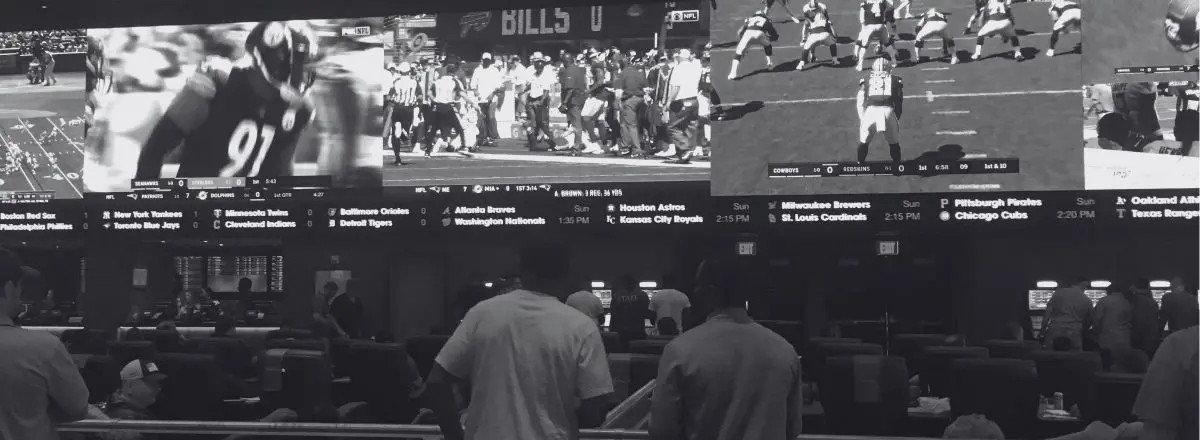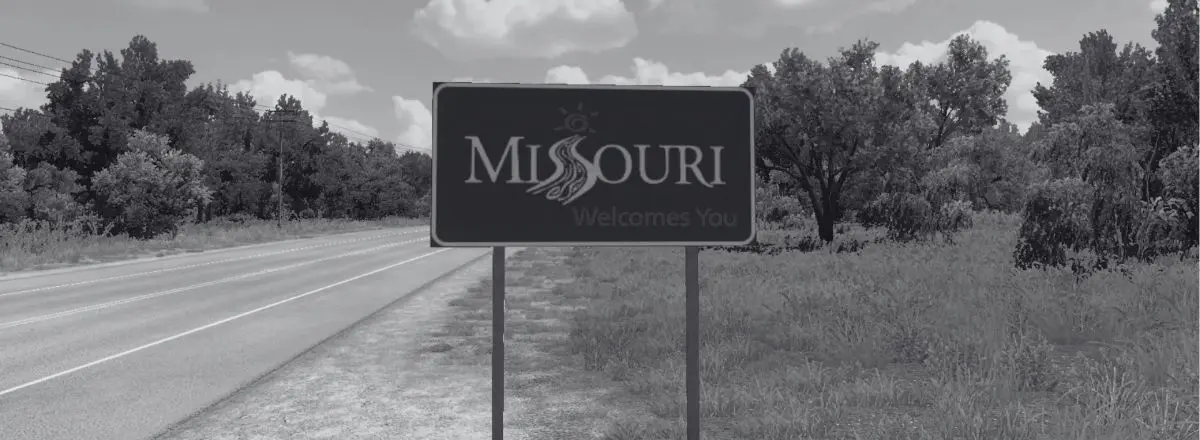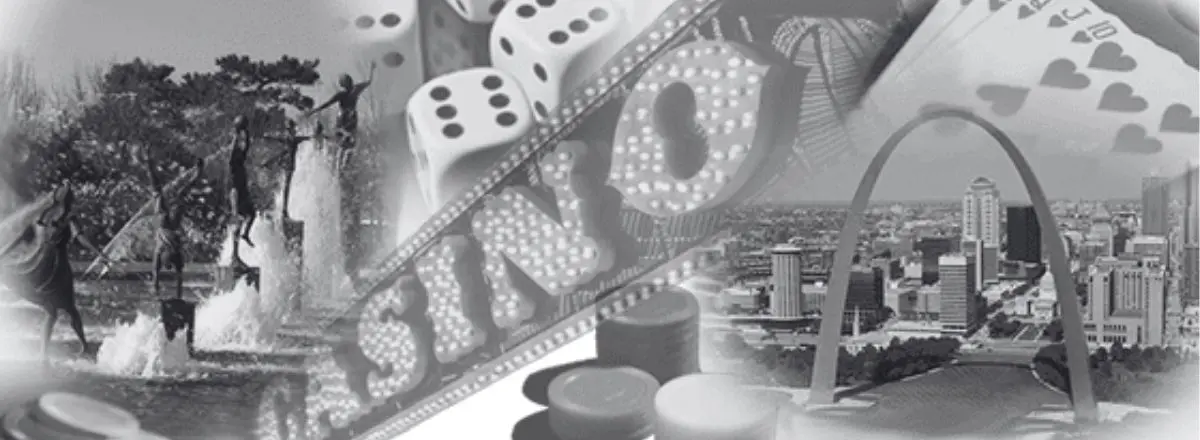There is no shortage of interest in joining the Missouri sports betting market. Just asked the hundreds of companies and operators that applied for a license.
As part of the constitutional amendment that legalizes sports betting in Missouri, The Show-Me State will award a total of 14 traditional licenses. Two of these licenses are considered “untethered.” This means they can operate independently inside the market. DraftKings and, shockingly, Circa Sportsbook have already sewn up these licenses.
Another 12 “tethered” licenses will be doled out from here. These stipulate that each provider partners with a tribal casino or pro sports team in Missouri. Applications for one of these spots are due by mid-September, and let’s just say regulators will have no shortage of options from which to choose.
"We've had obviously a significant number of applications and those are to, you know, both the big names that you’ve probably heard of like BetMGM and Underdog (Fantasy) Sports,” Missouri Gaming Commission Chair Jan Zimmerman said, per MissouriNet’s Marshall Griffin. As Griffin then points out from here, the “Missouri Gaming Commission has received more than 450 applications for sports betting licenses so far.”
This is a monstrous number. It speaks not only to the rise of sports betting in the United States, but the value of the Missouri market in general.
The Missouri Sports Betting Market Could Be Quite Lucrative
As the 19th-most populated state in the country, Missouri isn’t engendering flagship-market talk. However, it has pro sports franchises in MLS, NHL, MLB and NFL, and St. Louis is one of the U.S.’s major city hubs.
To that end, the size and scope of the Missouri sports betting market may surprise some people. Consider this analysis from Cyrus Cole of AI Invest:
“Missouri's sports betting market is projected to generate $3.4 billion in total wagers in its first year, with gross gaming revenue (GGR) from DraftKings and FanDuel alone expected to exceed $575 million at market maturity. DraftKings' share of this pie is estimated at $175 million annually, a figure that aligns with its broader 2025 revenue projections of $4 billion across all markets. The state's 10 percent tax rate on GGR further enhances the appeal of Missouri, as it is significantly lower than rates in neighboring states like Illinois (20–40 percent plus per-bet tax) and Indiana (9.5 percent).”
This last part helps explain why so many operators want to crack the market. With higher operating fees elsewhere, revenue projections for Missouri sports betting sites are more favorable.
In fact, this may also explain why Circa Sportsbook beat FanDuel for the final untethered Missouri sports betting license. Indeed, part of it is Circa’s sales pitch to the Missouri Gaming Commission. But the fees associated with an untethered license are higher than most boutique operators tend to pay.
While Circa isn’t new to the game, they remain in the process of expanding their footprint beyond Nevada sports betting. This is an ultra-aggressive play by them. Especially when every sportsbook seemingly struggles to strip market shares from DraftKings and FanDuel. The lower tax rate in Missouri may be the impetus behind Circa going all-out now.
It May Not be Long Before Missouri’s Betting Tax is Under the Microscope
Missouri’s sportsbook-friendly tax is no accident. It is also, by the way, no doubt the reason FanDuel pushed for a partnership with MLS’ St. Louis City SC. After missing out on an untethered license. The company needs to ensure its foothold in the market somehow.
Anyway, the legalization of Missouri sports betting was driven by a petition rather than the state legislature. The House of Representatives and Senate struggled for years to get bills over the hump. So, a group of sponsors took matters into their own hands.
Not surprisingly, Missouri’s pro sports franchises joined forces with top online sportsbooks to roll out the petition. It makes sense, then, that The Show-Me State’s sports betting tax pales in comparison to the market average.
Chances are high this will not fly under the radar for long. Other states are taking a long, hard look at their current betting tax rates. Places like Illinois, Ohio and Massachusetts are actively addressing it. Illinois’ is actually already on course to be raised.
Right now, it is not clear whether the Missouri sports betting amendment includes language that prevents a tax increase for a certain amount of time. Rest assured, though, state lawmakers will inevitably look to raise it. They may not push for an increase during 2026 meetings. And maybe not even in 2027. But we will be shocked if they don’t debate the matter at the two-year mark…if not sooner.
Missouri Sports Betting Market will be a Fascinating Case Study
If you cannot tell already, the Missouri sports betting launch will be a tantalizing storyline to monitor. Not only might the petition serve as a blueprint for other markets that can’t get legislation over the hump, but the lower tax rate may actually make it preferable for operators to pursue this route.
Beyond that, and more importantly, it will gauge other sportsbooks’ ability to rival FanDuel and DraftKings. Circa is arguably in the best position of anyone, even more so than the branded book ESPN Bet. Beating out FanDuel for an untethered license is, in no uncertain terms, a huge deal. And because it’s a new market, they do not have to worry as much about DraftKings’ ubiquity.
There are no guarantees this works, of course. But this is the first time in a long time we have a market-share development worth monitoring.
Take a look at this list of the top online sportsbooks so you can find one that works for all of your sports betting needs:
-
EXCLUSIVE BONUS
 50% bonus up to $250Play Now
50% bonus up to $250Play NowT&C apply, 18+, Play responsibly
-
EXCLUSIVE BONUS
 125% up to $1,250Play Now
125% up to $1,250Play NowT&C apply, 18+, Play responsibly
-
EXCLUSIVE BONUS
 225% up to $3,625Play Now
225% up to $3,625Play NowT&C apply, 18+, Play responsibly
-
 50% bonus up to $250Play Now
50% bonus up to $250Play NowT&C apply, 18+, Play responsibly
-
 125% up to $2,500Play Now
125% up to $2,500Play NowT&C apply, 18+, Play responsibly












